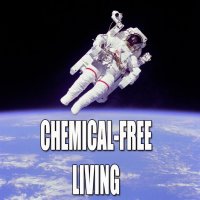Ти ги прочитав сите линкови и сите беа контрадикторни,особено од вториот линк кој го ставил од cancer.org линк за аспартамот,другите не се релаватни зашто тоа се размислувања не се истражувања.
Ако се повикуваш на ФДА, прочитј го прво ова дискусија од форумов за Кодекс Алиментариус во врска со тоа што е како и зашто
http://forum.kajgana.com/threads/Кодекс-Алиментариус-ви-забранува-да-јадете-природна-храна.46376/
понатаму прочитај кој бил прв ЦЕО на фирмата која е купена од Монсанто за да го произведува натренот (Доналд Рамсфелд, голем јебо во САД и меѓународната политика)
и види ја постапката како ФДА го одобрува овој производ, по "убедување" од Рамсфелд. Да не раскажувам, постапката одела вака
December 1965-- While working on an ulcer drug, James Schlatter, a chemist at G.D. Searle, accidentally
discovers aspartame, a substance that is 180 times sweeter than sugar yet has no calories.
Spring 1967-- Searle begins the safety tests on aspartame that are necessary for applying for FDA approval of food additives.
Fall 1967-- Dr. Harold Waisman, a biochemist at the University of Wisconsin,
conducts aspartame safety tests on infant monkeys on behalf of the Searle Company. Of the seven monkeys that were being fed aspartame mixed with milk,
one dies and five others have grand mal seizures.
November 1970--
Cyclamate, the reigning low-calorie artificial sweetener --
is pulled off the market after some scientists associate it with cancer. Questions are also raised about safety of saccharin, the only other artificial sweetener on the market, leaving the field wide open for aspartame.
December 18, 1970-- Searle Company executives lay out a "Food and Drug Sweetener Strategy' that they feel will put the FDA into a positive frame of mind about aspartame. An internal policy memo describes psychological tactics the company should use to bring the FDA into a subconscious spirit of participation" with them on aspartame and get FDA regulators into the "habit of saying, "Yes"."
Spring 1971--
Neuroscientist Dr. John Olney (whose pioneering
work with monosodium glutamate was responsible for having it removed from baby foods) informs Searle that his
studies show that aspartic acid (one of the ingredients of aspartame)
caused holes in the brains of infant mice.
One of Searle's own researchers confirmed Dr. Olney's findings in a similar study.
February 1973-- After spending tens of millions of dollars conducting safety tests, the G.D. Searle Company applies for FDA approval and submits over 100 studies they claim support aspartame's safety.
March 5, 1973-- One of the first FDA scientists to review the aspartame safety data states that "
the information provided (by Searle) is inadequate to permit an evaluation of the potential toxicity of aspartame". She says in her report that in order to be certain that aspartame is safe, further clinical tests are needed.
May 1974-- Attorney, Jim Turner (consumer advocate who was instrumental in getting cyclamate taken off the market) meets with Searle representatives to discuss Dr. Olney's 1971
study which showed that aspartic acid caused holes in the brains of infant mice.
July 26,
1974-- The FDA grants aspartame its first approval for restricted use in dry foods.
Аugust 1974--
Jim Turner and Dr. John Olney file the first objections against aspartame's approval.
March 24, 1976-- Turner and Olney's petition triggers an FDA investigation of the laboratory practices of aspartame's manufacturer, G.D. Searle. The investigation finds
Searle's testing procedures shoddy, full of inaccuracies and "manipulated" test data. The investigators report they "had never seen anything as bad as Searle's testing."
Да не должам, вмешана е и администрацијата на Реган, за кого работи Рамсфелд. Крајот е познат
Fall 1983-- The
first carbonated beverages containing aspartame are sold for public consumption.
November 1984-- Center for Disease Control (CDC) "Evaluation of consumer complaints related to aspartame use." (summary by B. Mullarkey)
November 3, 1987-- U.S. hearing, "NutraSweet: Health and Safety Concerns," Committee on Labor and Human Resources, Senator Howard Metzenbaum, chairman.
Очигледно е голем бизнис
"Survey of aspartame studies: correlation of outcome and funding sources," 1998, unpublished:
http://www.dorway.com/peerrev.html Walton found 166 separate published studies in the peer reviewed medical literature, which had relevance for questions of human safety. The 74 studies funded by industry all (100%) attested to aspartame's safety, whereas of the 92 non-industry funded studies, 84 (91%) identified a problem.
Six of the seven non-industry funded studies that were favorable to aspartame safety were from the FDA, which has a public record that shows a strong pro-industry bias.
И на крај не страдај од теориии на заговор и од заблуди за хемикалии.
Ако јајцето ти се претстави вака,ќе го јадеш ли?
Не мешај други теми овде. Што содржат растенијата, животните или нивните производи се други теми. Ако имаш студирано некоја од природните науки, ова и досега ќе го знаеше какви се соединенија постојат во живиот свет. Си учел органска хемија?

![19cthrwhxoxpmpng[1].png](/data/attachments/86/86772-07f8b1a15f0444a188ba5f354e400ecd.jpg)
